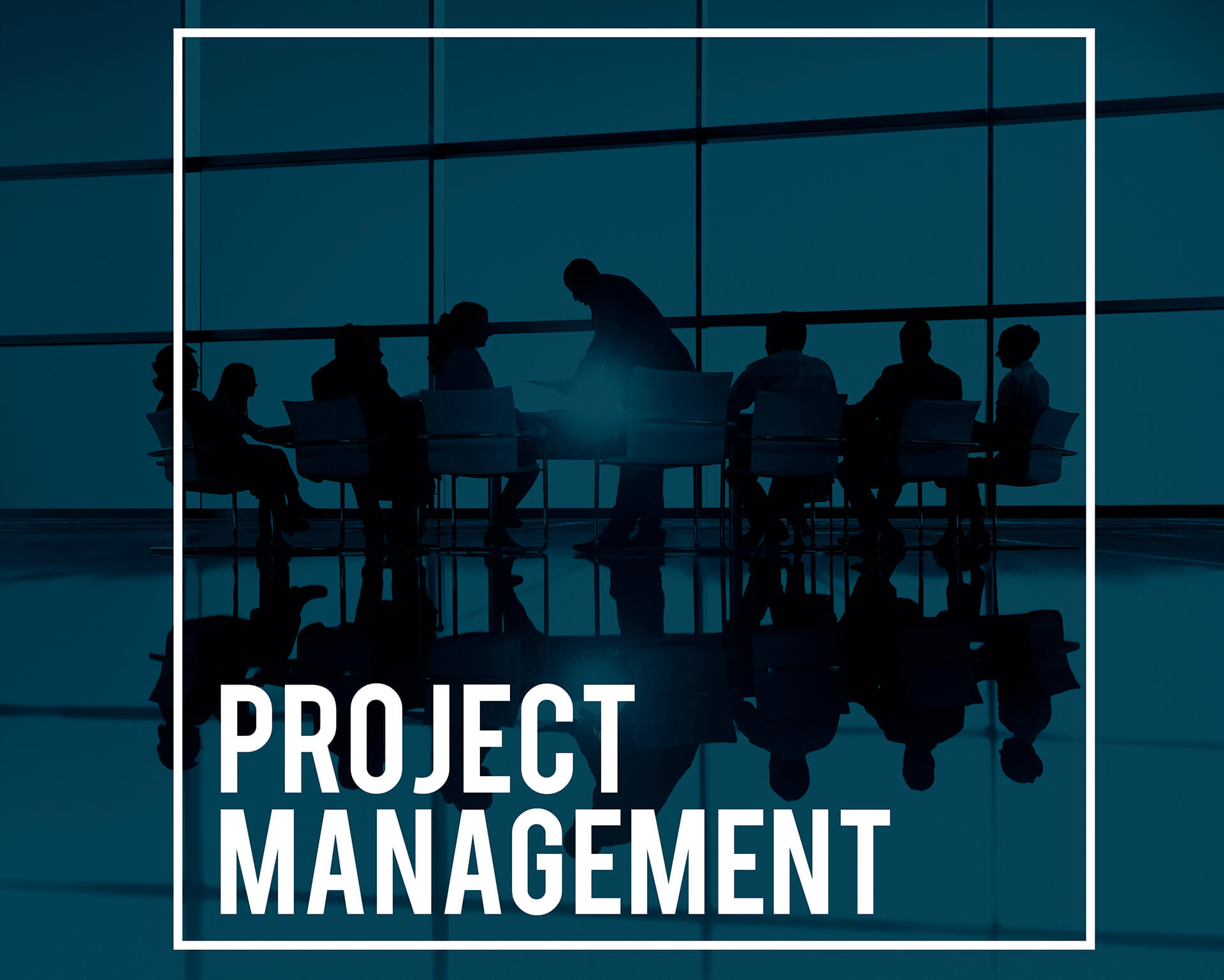
Posted on: Mar 28, 2024
Effective project team management is crucial for the successful execution of projects. It ensures that goals are met efficiently, resources are utilized effectively, and projects are completed within the defined constraints of time and budget.
How to achieve the above? Let’s have a look …
Building a Project Team: Best Practices
Selecting the right team members. Choosing the right individuals for a project team is fundamental. Team members should possess the necessary skills, experience, and attitude to contribute effectively to the project’s objectives:
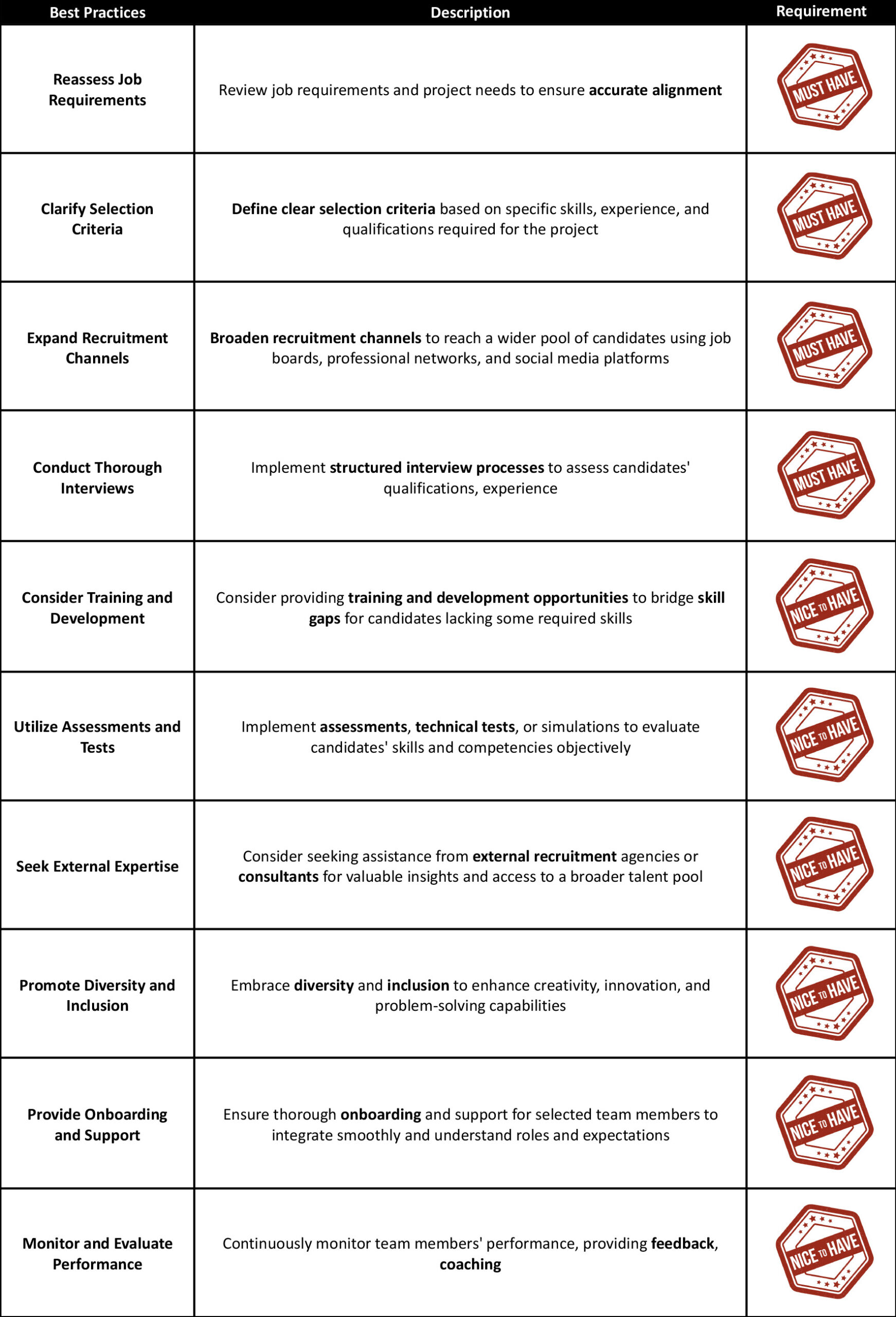
By following these steps, you can improve your chances of selecting the right team members for your project and setting your team up for success. Remember that building an effective project team takes time, effort, and a commitment to finding the best-fit candidates for the job.
IMPORTANT: If you find yourself unable to select the right team members for your project, it’s important to address the issue promptly to mitigate potential challenges.
Creating a balanced team. A balanced team encompasses diversity in skills, personalities, and perspectives. This diversity fosters creativity, innovation, and problem-solving capabilities within the team.
How to make it effective?:
- Assess project requirements and identify necessary skill sets while considering diversity in skills, personalities, and perspectives.
- Assign roles based on individuals’ strengths and experiences to ensure a diverse yet complementary team composition, fostering creativity, innovation, and problem-solving capabilities.
- Encourage open communication, collaboration, and provide opportunities for skill development to maximize team performance and achieve project objectives efficiently.
Defining roles and responsibilities. Clear definition of roles and responsibilities helps in avoiding confusion and duplication of efforts. Each team member should understand their tasks and how they contribute to the overall project.
Best practices:
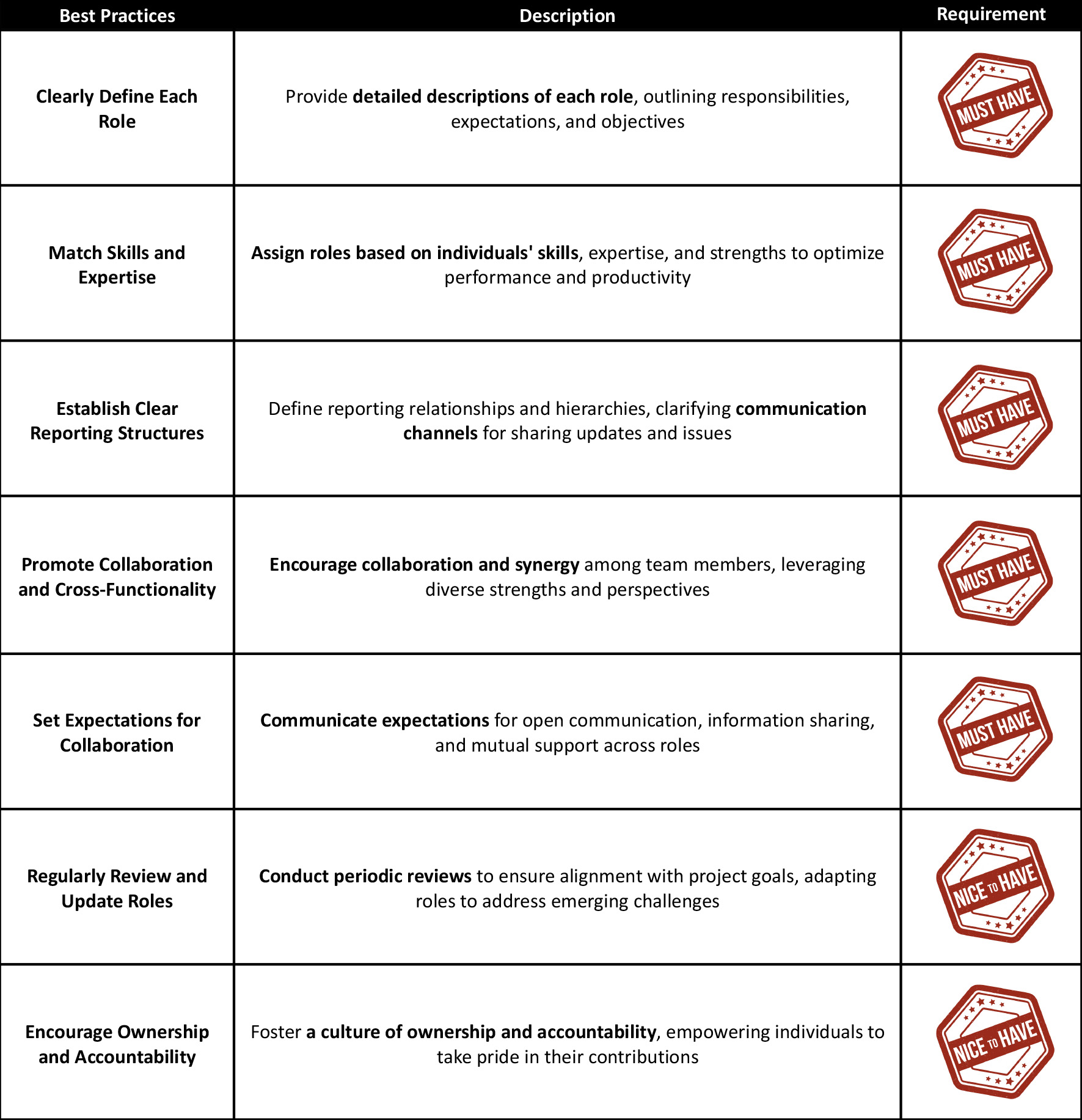
Communication And Collaboration Within The Project Team: 3 Main Fundamentals
- The value of OPEN COMMUNICATION
Open communication encourages transparency, fosters trust, and facilitates the sharing of ideas and feedback among team members. - Building a culture of TRUST
Trust is the foundation of effective teamwork. It allows team members to collaborate openly, take risks, and support each other in achieving common goals. - Effective COLLABORATION among team members
Collaboration involves working together towards common objectives, leveraging each other’s strengths, and respecting differing opinions and viewpoints.
Project Planning: 3 Main Areas
- Defining project GOALS and PHASES
Clear definition of project goals and phases provides a roadmap for the team, ensuring alignment of efforts towards achieving desired outcomes. - Creating a project SCHEDULE and TASK allocation
A well-defined project schedule and task allocation ensure that resources are allocated optimally and deadlines are met without compromising quality. - Managing project RESOURCES
Effective resource management involves identifying, acquiring, and utilizing resources efficiently to meet project requirements.
Motivation and Team Engagement: 3 Main Steps
- Understanding the NEEDS and MOTIVATIONS of each team member
Understanding individual motivations helps in fostering a supportive and engaging work environment, where team members feel valued and appreciated. - Establishing INSPIRING GOALS and rewards
Setting challenging yet achievable goals and providing meaningful rewards fosters motivation and commitment among team members. - Monitoring PROGRESS and recognizing ACHIEVEMENTS
Regular monitoring of progress and timely recognition of achievements boost morale and reinforce positive behaviours within the team.
Conflict Management: An important skill
Conflict is inevitable in every team. Effective conflict resolution strategies help in addressing issues constructively and maintaining team harmony, through:
- Recognizing and resolving conflicts within the team
- Building conflict resolution skills
- Facilitating constructive dialogue
Encouraging open and constructive dialogue enables team members to express their concerns, share perspectives, and find mutually acceptable solutions.
How to achieve this?:
- Understand the root causes of conflicts within the team or organization
- Practice active listening and empathy to understand opposing viewpoints
- Seek mutually beneficial solutions through compromise and negotiation
- Foster a culture of open communication and constructive feedback, to address disagreements and conflicts in a respectful and productive manner
- Address conflicts promptly and effectively to promote stronger relationships and collaboration
Project Progress Tracking: Monitor, Adjust, Prevent …
- MONITORING and controlling project phases
Regular monitoring and control of project phases help in identifying deviations from the plan and taking corrective actions in a timely manner. - ADJUSTING the plan when necessary
Flexibility in adjusting the project plan allows the team to adapt to changing circumstances and mitigate risks effectively. - PREVENTING delays and issues
Proactive measures to prevent delays and address issues as they arise minimize disruptions and keep the project on track towards successful completion.
Evaluation, Lessons Learned, Development: As Final Steps Of The Project Closure
Conducting a comprehensive evaluation of project outcomes helps in identifying successes, learning from failures, and improving future project endeavours. That’s why it is recommended to analyse successes and failures after each project’s completion.
Best practices:
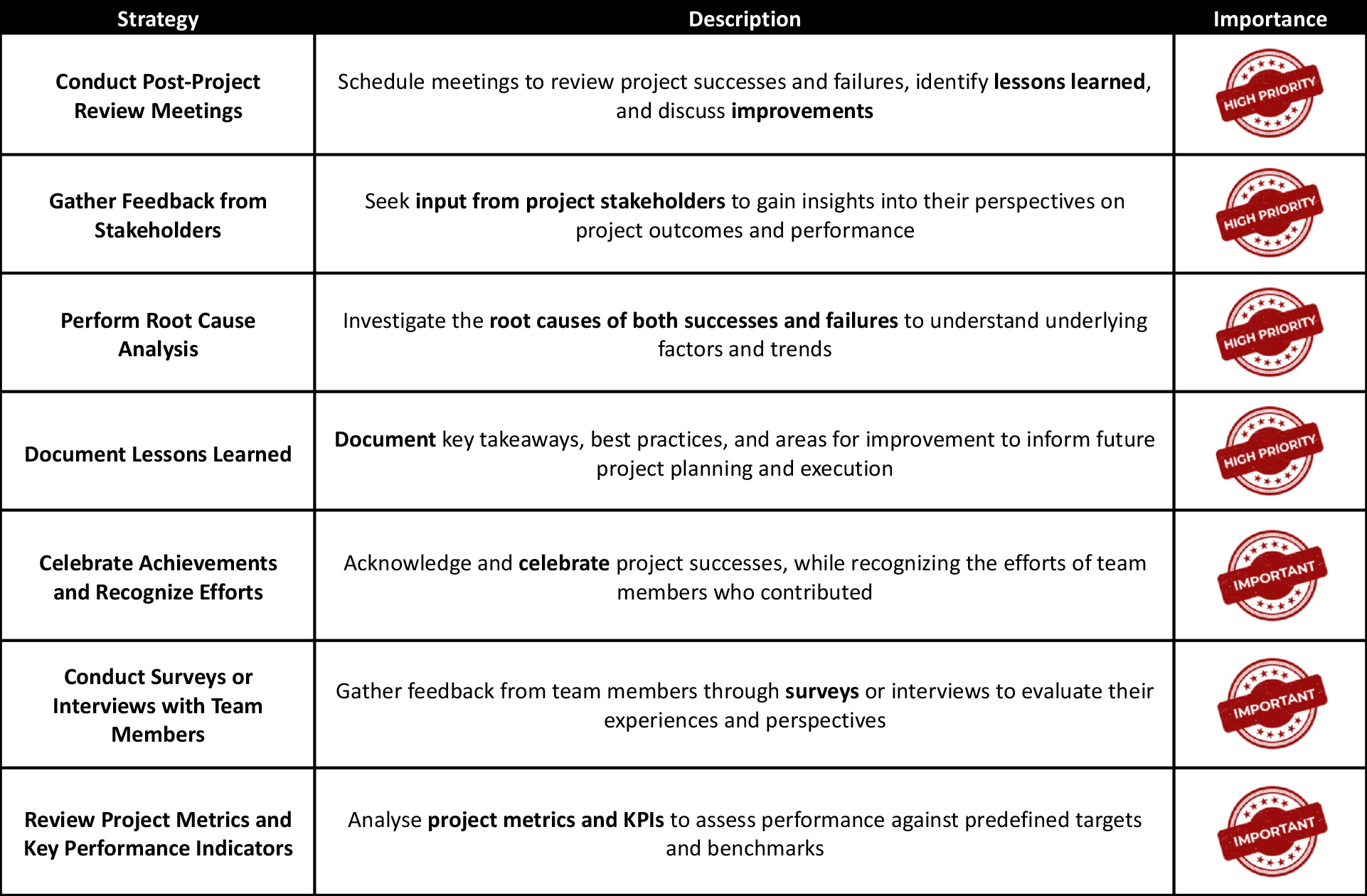
Implementing these strategies for analysing successes and failures after the project’s completion can provide valuable insights, promote continuous improvement, and enhance future project outcomes.
Drawing lessons from past experiences and incorporating them into future projects enhances the team’s capabilities and improves overall performance.
Best practices:
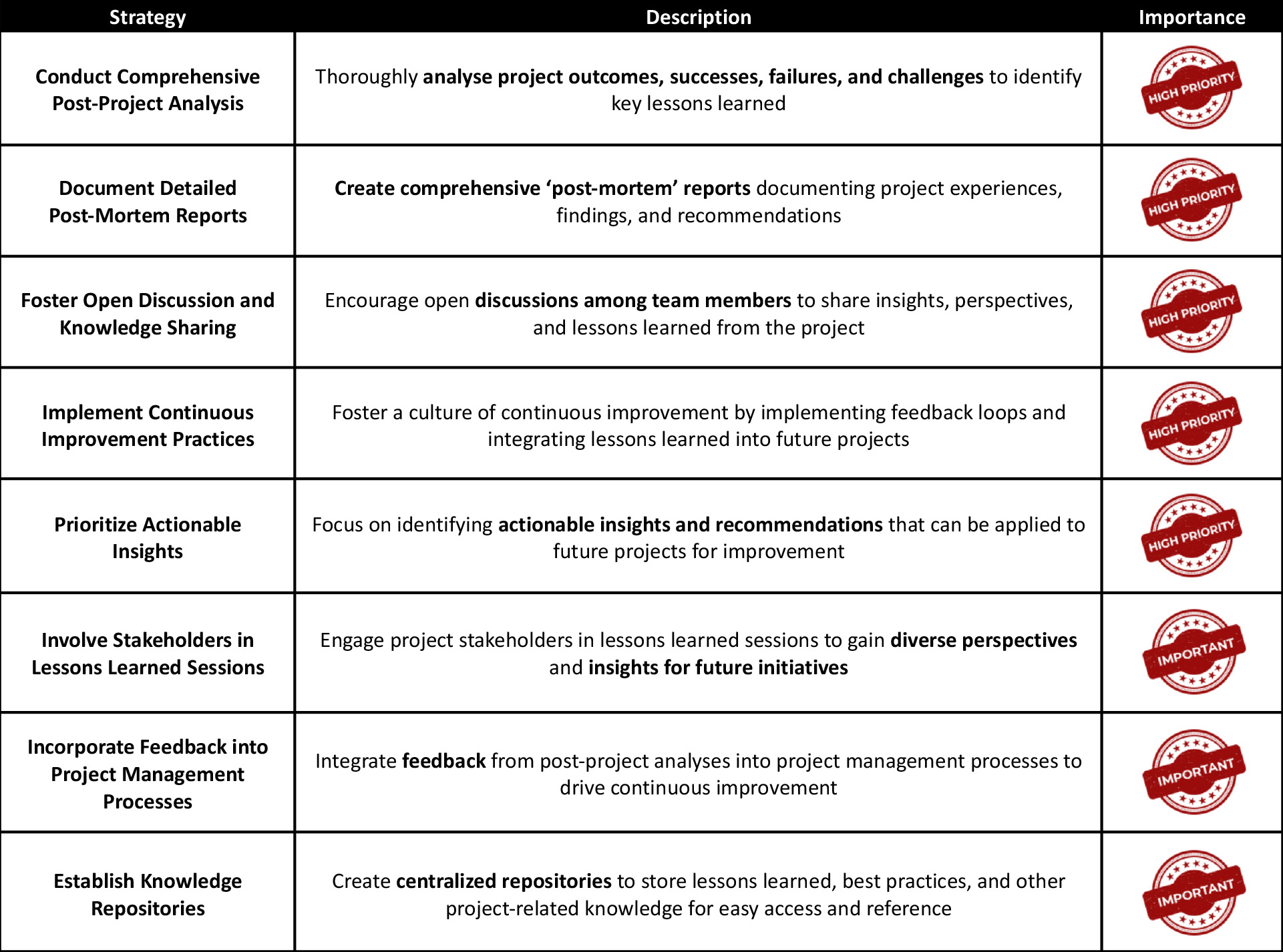
By adhering to these best practices, project teams can effectively draw lessons and learning from past projects, fostering a culture of continuous improvement and enhancing future project outcomes.
Continuous learning and development opportunities empower team members to enhance their skills, expand their knowledge, and grow professionally.
Best practices:
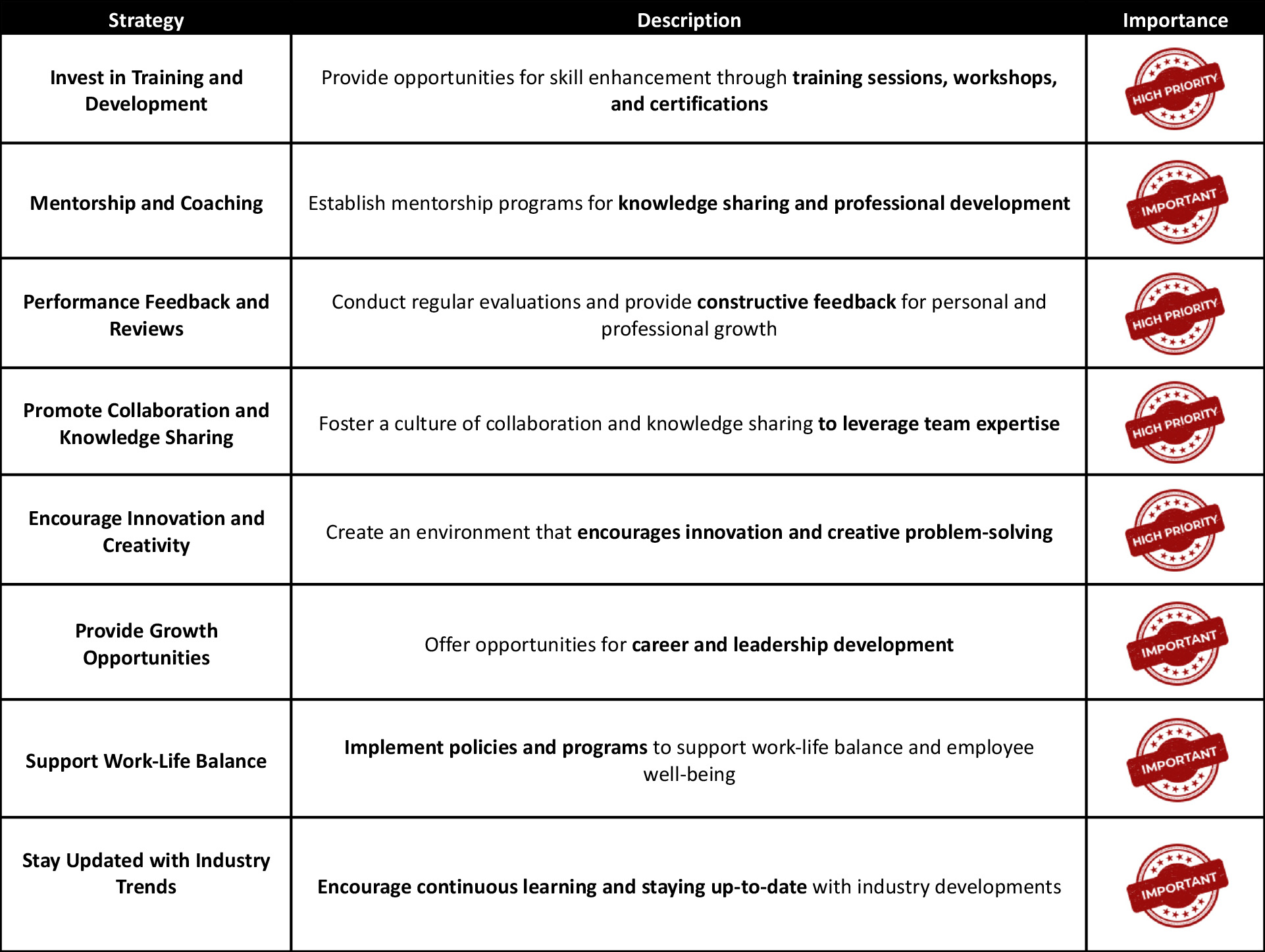
Implementing these strategies can contribute to the ongoing growth, engagement, and effectiveness of the project team, ultimately leading to improved project outcomes and organizational success.
Tools and Software for Project Team Management: Are They Really Important?
The answer is always YES!
Various tools and software applications streamline project management processes, enhance collaboration, and improve productivity, making them useful for facilitating team management.
Selecting the appropriate tools and software solutions based on the project’s requirements ensures efficiency and effectiveness in project execution by choosing the right tools for the project’s needs.
Examples of the tools and programs to facilitate team management:
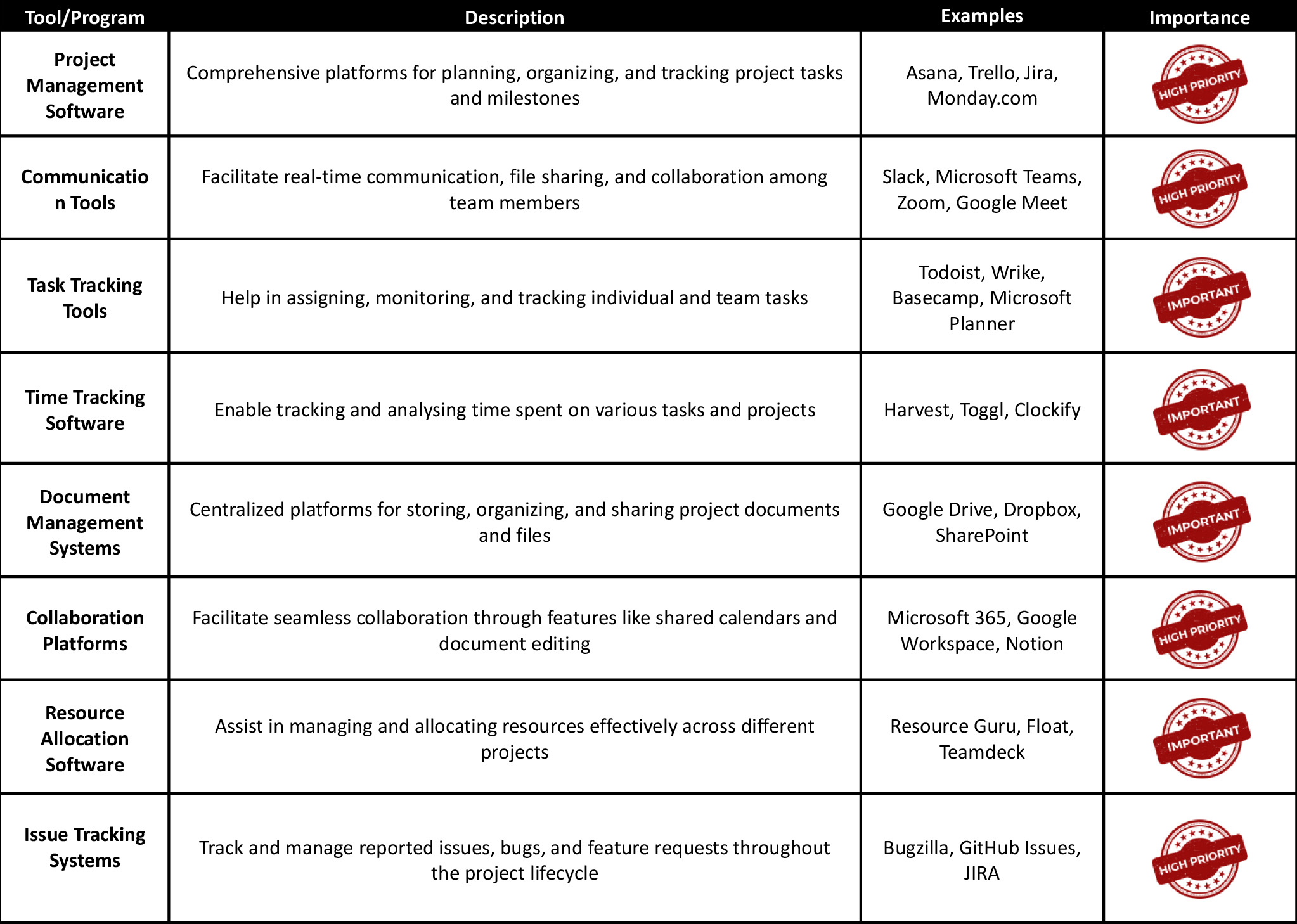
The tools and programs play a crucial role in streamlining project management processes, enhancing collaboration, and improving productivity within project teams. Depending on the specific needs and requirements of each project, teams may prioritize different tools accordingly.
Sounds too complicated or expensive? Do not be afraid. Often, a reputable Excel program is enough 😊
Remember!
Effective project team management is based on principles such as clear communication, collaboration, proactive planning, conflict resolution, and continuous improvement.
Incorporating these principles into project implementation cultivates a culture of excellence, collaborative synergy, and innovative endeavours, culminating in successful project outcomes.
Author:

Marta Baran
Program Manager & Senior Consultant
